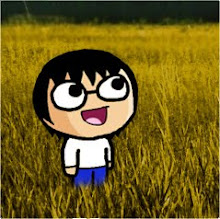The rest of the story was pretty much the same as that of the Gospel according to Mark, except for maybe the story of Zacchaeus, a rich man, who came to repent, and th last meal of Jesus and his disciples.
The rest of the story was, really, the same (except for the fact that the wording was different between the gospels). Judas betrays Jesus, Jesus gets crucified, and he dies.
In the Gospel according to Mark, the last words of Jesus were:
"My God, my God, why hast thou forsaken me?" (Gospel of Mark 15:34)
This suggested that Jesus didn't exactly want to die, even though it was sort of his mission. In contrast, the last quote of the Gospel according to Luke was somewhat different.
"Father, into thy hands I commend my spirit." (Gospel of Luke 23:46)
Last post, I said something about how the Gospel according to Luke portrayed Jesus' character as more noble. This can also be seen in the last thing Jesus said before he died. Here, he sounds calm and as if he had done all that he was supposed to do. It's funny how each gospel has a different version of Jesus' character.
Then Jesus resurrects, then flies up to heaven.

The gospels were pretty fun to read. It was also fun to see the differences and similarities between the two gospels I read, and how it carried much more meaning than how much I thought it had before reading it.

















